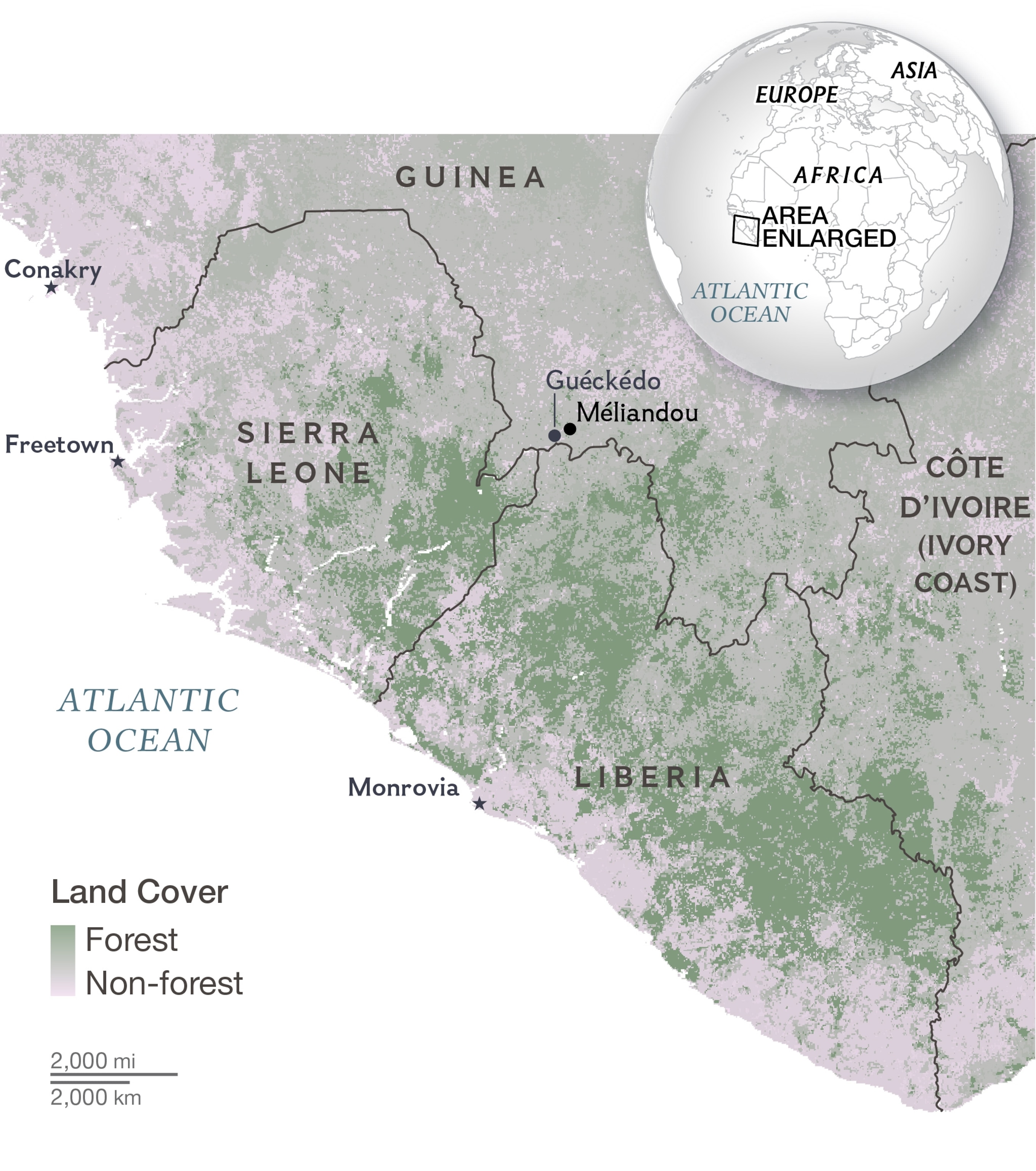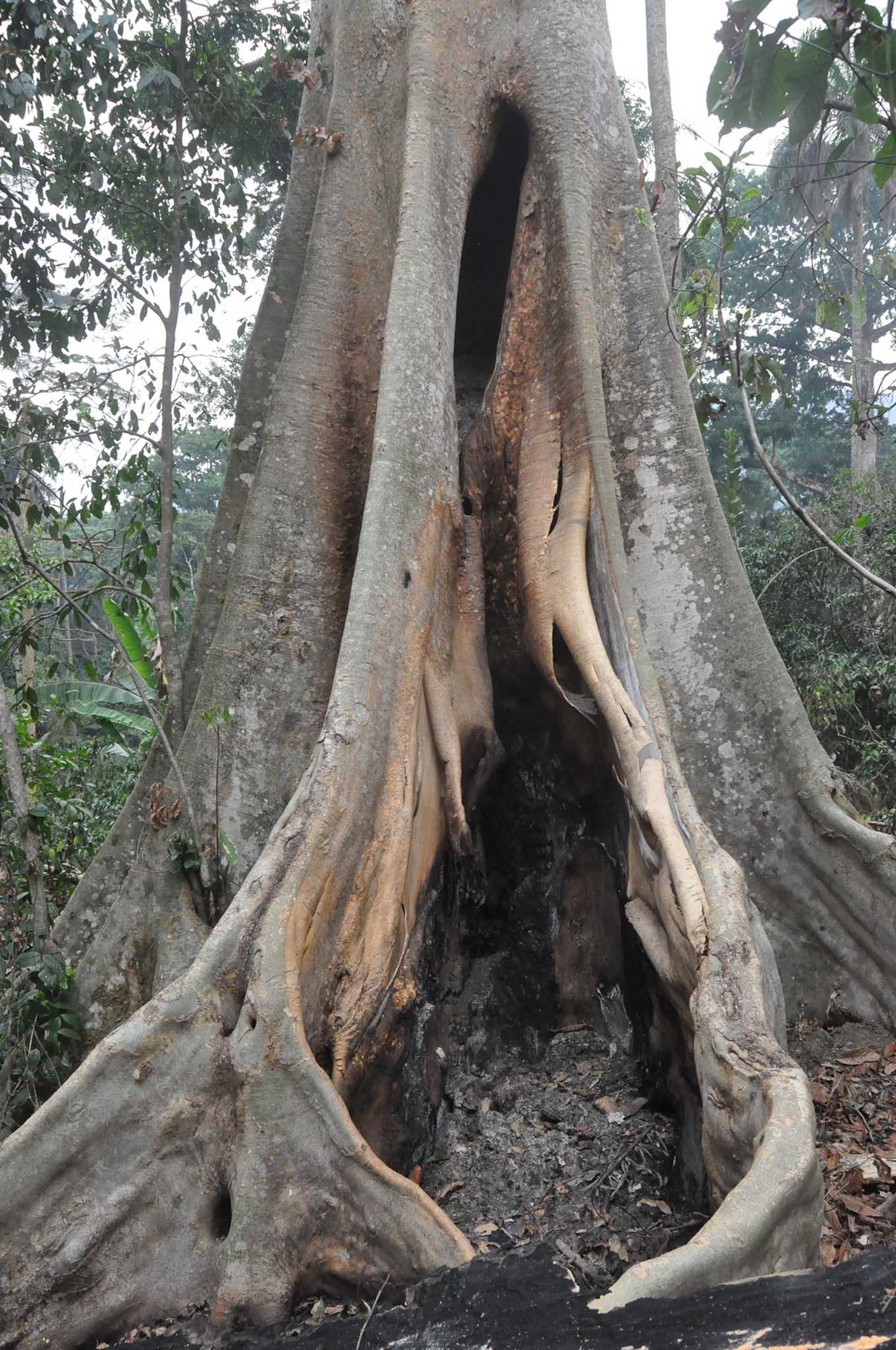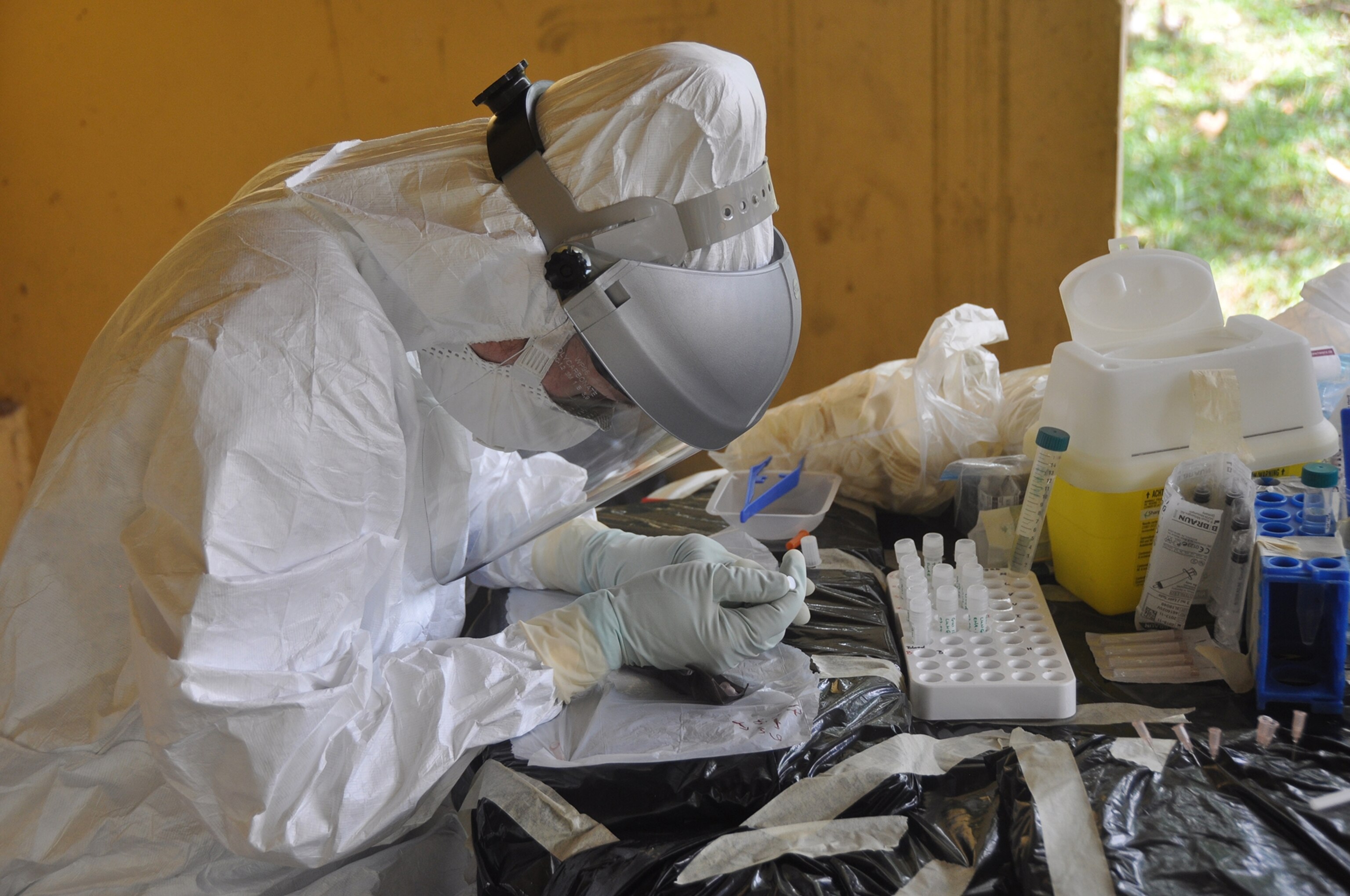
Insect-Eating Bat May Be Origin of Ebola Outbreak, New Study Suggests
The first Ebola victim may have contracted the disease from small bats dwelling in a hollow tree.
While people in West Africa continue to die from Ebola, scientists are pondering a mystery that has eluded them since the first known outbreak of the virus among humans, in 1976: Where does this fearful bug hide when it’s not killing people?
A new hypothesis described Tuesday in EMBO Molecular Medicine presents an unexpected scenario of how Ebola 2014 may have gotten started. The study suggests that the virus may have passed into its first human victim, a child, from a small insect-eating bat, an animal so diminutive that it is hunted by children but not by adults.
Ebola virus is a zoonosis, meaning an infectious agent that lives inconspicuously and innocuously within some nonhuman animal (its reservoir host) and spills over occasionally into humans, causing disease.
Fruit bats, which are relatively large and meaty, have often been touted as suspects, but the virus’s reservoir host has never been positively identified. The gold standard of proof—culturing live virus from the tissues or blood of a candidate animal—hasn’t ever been achieved from fruit bats, nor from any other creature. So the virus is still at large, its reservoir indeterminate, its whereabouts unknown, somewhere within the landscape of tropical Africa.

Tracking a Killer
The Ebola epidemic of 2014, which has now totaled almost 20,000 cases and at least 7,708 deaths, began quietly in southeastern Guinea slightly more than a year ago. News of the outbreak reached the wider world last March, and within weeks Fabian Leendertz of the Robert Koch Institute in Berlin assembled a multidisciplinary team that included ecologists and veterinarians, plus an anthropologist to interview local people, and traveled to the affected area, near the borders of Liberia and Ivory Coast.
Surveying wildlife in forests there, the scientists found no evidence of a die-off among larger animals, such as duikers, monkeys, and chimpanzees, that are also susceptible to Ebola. This suggested that perhaps the virus had spilled over directly from its reservoir host into humans, without passing through other animals hunted or scavenged for food.

The team then focused on a village called Méliandou, in Guinea—the index village, where the human outbreak began. A young boy, Emile Ouamouno, was the earliest known victim. He died with Ebola-like symptoms in Méliandou back in December 2013, followed soon by his mother, sister, and grandmother. No adult males died in the first wave of the outbreak, another clue that seemed to point away from hunted wildlife as the origin of the virus.
During eight days in Méliandou, Leendertz’s team gathered testimony from survivors and collected samples, including blood and tissues from captured bats. From these data emerged the new hypothesis: Maybe the reservoir host was a bat, yes—but a very different sort of bat, in a different ecological relationship with humans.
While fruit bats are abundant in southeastern Guinea, they don’t roost in large aggregations near Méliandou. But the village did harbor a sizable number of small, insectivorous bats, which roosted under the roofs of houses and in natural recesses, such as hollow trees. The locals call them lolibelo.
“These bats are reportedly targeted by children,” the new paper recounts, “who regularly hunt and grill them over small fires.” Imagine a marshmallow roast, except the marshmallows are mouse-size bats devoured by protein-hungry children.

The researchers then uncovered another clue: a large hollow tree, which had recently been set afire, producing as it burned what someone recalled as “a rain of bats.” Leendertz’s team collected soil samples at the base of that tree, which eventually yielded traces of DNA assignable to Mops condylurus, commonly called the Angolan free-tailed bat.
That species matched the villagers’ descriptions of lolibelo. What’s more, the big hollow tree had reportedly been a favorite play spot for small children of the village, including the deceased little boy, despite—or perhaps because of—the fact that it was full of little bats.
Too Close for Comfort?
All this is circumstantial evidence, pointing to a possibility that Ebola 2014 began when the boy in Méliandou came in contact with an Angolan free-tailed bat.
Bats of that species have previously been found to contain antibodies against Ebola virus, but the sample numbers were very small, and antibodies are weak evidence. The species has therefore not been included among the prime suspects as a reservoir for Ebola. That could change, if further sampling of Angolan free-tailed bats reveals any stronger data connecting the bat and the virus.

The new paper is intriguing and suggestive—but is it important?
“Could be,” says Charles Calisher, emeritus professor at Colorado State University and an authority on zoonotic viruses, “if they would follow up with more studies.”
Leendertz and colleagues have already followed up, with extensive bat sampling in villages in Ivory Coast, Guinea’s neighbor to the southeast. Laboratory results from those samples, available soon, may suggest whether Mops condylurus is a hot lead in the long search for Ebola’s hiding place—or just another enticing dead end.

If the lab data do implicate this bat species, then a disquieting question arises: Why aren’t there more spillovers of Ebola virus into humans—outbreaks beginning every month, every week?
The Angolan free-tailed bat is a forest creature that has become a village creature; as the great trees (including the hollow trees, like that one in Méliandou) have been felled, replaced by clearings and gardens and settlements, the bat has been forced to adapt. It has become synanthropic, closely associated with humans. Now it roosts in the hundreds beneath the thatch and metal roofs of village houses, just overhead as people eat and sleep.
Is Ebola that close too? If so, we’ve got still more to learn about this lethal, mysterious virus: not just where it hides and how it gets into humans, but why sometimes it lurks without leaping.

David Quammen’s most recent book is Ebola: The Natural and Human History of a Deadly Virus. You can follow him on Twitter at @DavidQuammen.